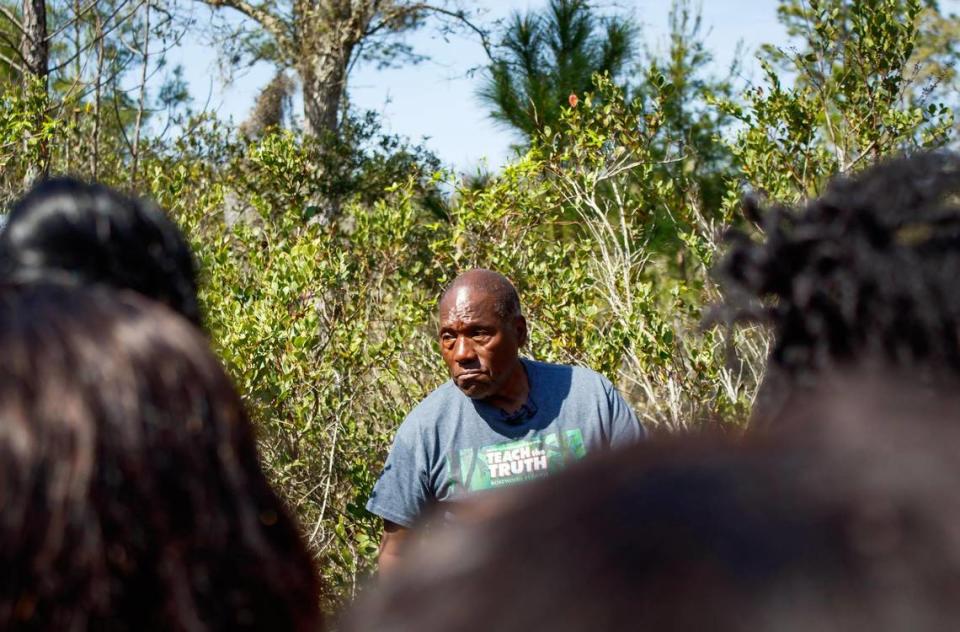Florida historian receives $1.5 million grant to expand his Black history tours
Marvin Dunn, one of Florida’s most esteemed historians, will broaden the scope of his “Teach the Truth” tours thanks to a $1.5 million grant courtesy of the Mellon Foundation. The funding will allow Dunn to expand the tour, which currently takes attendees to sites of racial violence across Florida, to other southern states.
“Florida was not the only state where lynchings took place,” said Dunn, the founder of the Miami Center for Racial Justice, the nonprofit organization that actually received the grant due to its focus on teaching Florida’s Black history.
The tours have received national attention amid Florida Gov. Ron DeSantis’ attack on Black history and features in the Washington Post, New York Times and NBC News.
“It’s all of our history,” Dunn said. “It’s all of our pain. It’s not just Black pain or white guilt: it’s all of our pain, it’s all of our responsibility to correct this record.”
Dunn listed Alabama, Mississippi and Georgia as potential expansion options. At age 84, Dunn certainly won’t lead all the tours as he does in Florida. Instead, he plans to pick a college or university in each state that will serve as an “academic base” from which he will begin to train tour guides.
“We will identify faculty members and have them teach the students,” Dunn said, adding that students will receive stipends for being tour guides .
This will be the second round of Mellon funding that the Miami Center for Racial Justice has received. The first grant – about $150,000 – came in 2023 after Mellon’s higher learning program director Phillip Brian Harper read about the tour and reached out to Dunn. What made Dunn’s work stand out, according to Harper, was his commitment to “complete, accurate narratives.”
“If we don’t have a full variety of perspectives grounded in the full variety of experiences that inform history and culture of this country, people will go through their lives poorly informed about the true depth, complexity and richness of this country,” Harper said. “And that means we would have an extremely impoverished society.”
In addition Dunn’s wealth of knowledge about Black Florida history, the process of physically trekking to each and every place gives the tours a sort of “transformational element” that allows people to take “ownership” of the history, he said.

“It’s not the same as reading it in the textbooks,” Dunn added. “You have to go where blood was shed.”
During his Florida tours, Dunn goes everywhere from Rosewood, the site of the Rosewood Massacre that claimed the lives of roughly 30 Black Americans, to Mims, where activists Harry and Harriette Moore were killed in their homes on Christmas Day, to the graves of various lynching victims. Robyn Haugabook, who attended a 2023 tour with her two daughters, spoke highly of the experience.
“This trip has brought the history to life,” Haugabook told the Herald in March 2023. “I want my children to take it back to their school, to their community, to their history teachers.”
Dunn still needs to decide where to go in the expansion states, though he did mention Alabama’s Equal Justice Institute and Emmett Till’s Mississippi grave as two options.
“We’re just now beginning to find out where the worst lynchings in Georgia took place,” Dunn said. “That’s why we need to do this: I’m considered an expert on anti-Black violence in the country, at least in the South, and I’m not sure what happened everywhere in Georgia but I know a lot of people died by the rope. We’ll find out and take people to those places.”

